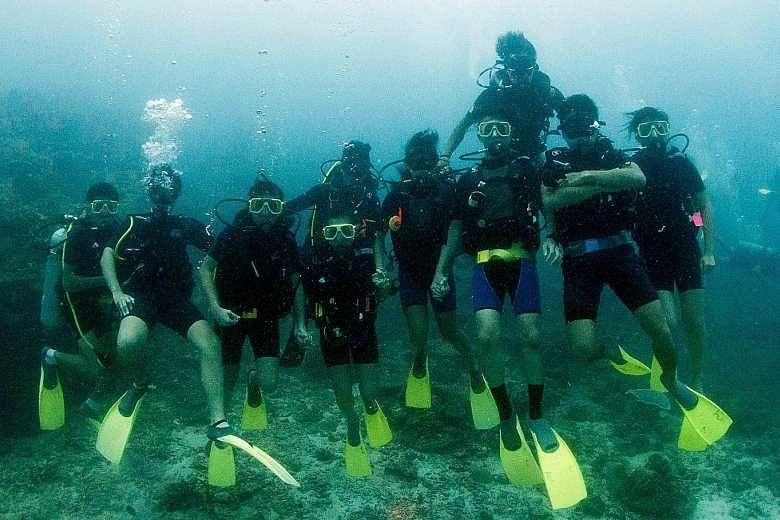Each year, coral reefs draw more than a million new divers, who can easily damage the fragile habitats with bad habits, such as touching marine life or kicking coral.
In a bid to tackle the issue, the United Nations Environment Programme (UNEP) last month launched new guidance material, including handbooks and a video, to help dive operators spread the word about how marine biodiversity can be protected as part of its Green Fins project.
The UNEP started Green Fins in 2004 to certify dive operators with environmentally friendly practices, such as promoting anti-littering and no-touch policies, and avoiding dropping anchors on reefs.
For the first time, five dive centres here - Gill Divers, Deep Blue Scuba, Eko Divers, 7 Scuba and Amazing Dive - have applied for the Green Fins certification and will be assessed this month.
Gill Divers marketing director Eugene Kwok said protecting the environment has always been a company practice. The certification, assessed annually, would help it keep its practices in check and also allows the company to use Green Fins' resources to promote environmental awareness to divers.
"Diving sustainably is less about the benefits to the business," said Mr Kwok. "We want to ensure that nature is protected so future generations will get to appreciate its beauty."
Ms Grace Lin, 25, said she is keen to dive with environmentally friendly centres as they will inculcate the right practices in divers.
"It is up to instructors to lead by example and enforce guidelines," said the transport industry executive. "Most divers start out with the intention of observing nature, so it makes sense to protect what we set out to observe."
Compared with threats such as overfishing, pollution, coastal development and climate change, which affect coral reefs on a global scale, scuba diving has a more localised impact, according to Mr Jerker Tamelander, head of the UNEP's Coral Reef Unit, who believes that coral reef management on a local scale helps to build reef resilience in the face of greater threats.
"By effectively managing the environmental impact of the diving industry to mitigate the associated local direct threats, we contribute to protecting the health of our coral reefs and oceans... and catalyse further action," he said.
Mr Stephen Beng, who chairs the marine conservation group of the Nature Society (Singapore), said dive centres here have a greater reach than the local community.
He added: "With Singapore's current drive to create more awareness of our marine biodiversity and what's needed to protect it, the Green Fins certification is especially significant as more divers visit our marine park and other reefs."


